
|
The Desert Island Discs
(in no particular order)
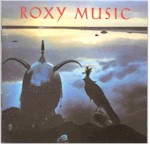
|
- Roxy Music-Avalon (1982, Warner Bros).
- Here was a band on the verge of imploding,
their glory days apparently behind them. And then Bryan Ferry & Co. put together a
record of stunning beauty that is still the benchmark for any record tagged with the
"moody pop" or "dinner music" moniker. The opening track, "More
Than This", still stands as my favorite song of all time.
|
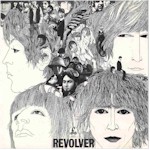
|
- The Beatles-Revolver (1966, Parlophone).
- Most people look to Sgt. Pepper as the
Beatles' finest hour, but for me it's Revolver. Here is where they began to experiment
with advanced recording techniques which didn't yet exist, George stepped up his
songwriting chops ("Taxman", "I Want To Tell You"), and John switched
from marijuana to acid ("She Said She Said", "Tomorrow Never Knows").
Revolver stands as the blueprint for Matthew Sweet, Redd Kross and virtually every other
power pop band this decade.
|
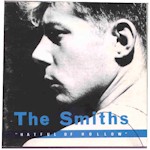
|
- The Smiths-Hatful of Hollow (1984, Rough
Trade/Sire).
- The best British band of the '80s, in my
humble opinion. Picking a favorite album by the Smiths is nearly impossible but this one
gets the nod because it includes "William It Was Really Nothing", a gorgeous
acoustic rendition of "Back To The Old House," and "How Soon Is Now?,"
which has a guitar riff that's modern rock's equivalent to Stairway To Heaven and a chorus
as catchy as it is morose: "I am human and I need to be loved/Just like everybody
else does."
|
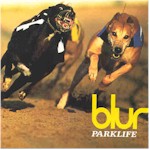
|
- Blur-Parklife (1994, SBK/EMI).
- When England was drowning in all things
grunge in 1993, Blur raised the Union Jack high and declared war on all things American
(they've since softened that opinion slightly, but that's another story). Parklife plays
like a jukebox of British pop, with tributes to The Jam ("Parklife,"
"Tracey Jacks"), The Clash ("Bank Holiday"), David Bowie ("London
Loves," "Jubilee"), even Gerry and the Pacemakers ("To The End").
A timeless classic in the making.
|
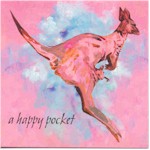
|
- The Trash Can Sinatras-A Happy Pocket (1996, Go! Discs, import only).
- This group of unassuming Scots have quietly
been making some of the best albums of the '90s. This record, their third overall, has
gorgeously spacious production (the opening instrumental "Outside"), songs that
bounce around in your head for days ("Twisted and Bent"), and some of the best
wordplay you're likely to find (Is "The Safecracker" really about a safecracker,
or something more sinister?). A slice of sublime pop.
|
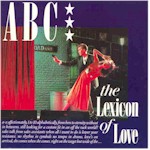
|
- ABC-The Lexicon of Love (1982, Mercury/Polygram).
- ABC were considered part of the New Romantic
movement in England that included Duran Duran and Spandau Ballet, but Lexicon was miles
above the pack. With future Art of Noise member and producer extraordinaire Trevor Horn
behind the boards, ABC constructed a lush sound with obvious debts to disco but firmly
rooted in the present (and future, for that matter: this record still sounds wonderful).
With singer Martin Fry in full voice and a dictionary of love-gone-wrong turns of phrase,
The Lexicon of Love proved that you can sound pretty and have substance as well.
|
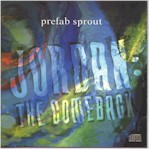
|
- Prefab Sprout-Jordan: The Comeback (1990,
Epic/Sony).
- Appropriately enough, Rolling Stone called
this album Brit pop's finest guilty pleasure since ABC's The Lexicon of Love. Paddy
McAloon had made his mark as a songwriter to reckon with on Prefab's second album Two
Wheels Good with the minor MTV hits "When Love Breaks Down" and
"Appetite." But Jordan is McAloon's masterpiece. A group of four mini-concept
albums rolled into one, McAloon's songs of love ("Wild Horses"), love gone wrong
(the heartbreaking "We Let The Stars Go"), Jesse James/Elvis ("Jesse James
Symphony") and God ("Scarlet Nights," "Doo Wop In Harlem") Jordan
is wuss rock, to be sure. But it's brilliant wuss rock.
|
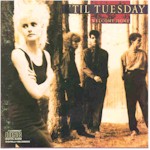
|
- 'Til Tuesday-Welcome Home (1986, Epic/Sony).
- Aimee Mann's sophomore effort with 'Til
Tuesday is leaps and bounds above their debut Voices Carry. Going through a tempestuous
relationship with songwriter Jules Shear, Mann taps into that angst and proves she's not
just a second rate Chrissie Hynde, a criticism she endured and did not at all deserve.
Rhett Davies fine tuned the atmospherics he used as producer on Roxy Music's Avalon, and
Mann wrote some of the catchiest breakup songs ever. Wistful, pretty and altogether better
than we had a right to expect.
|

|
- The Lightning Seeds-Dizzy Heights (1997,
Epic/Sony).
- The namesake of this Web page, head
Lightning Seed Ian Broudie has created a sound that might best be described as a cross
between Pet Sounds-era Beach Boys and Scritti Politti. Layers of harmonies, hooks galore,
and enough sugary sweet production to kill a diabetic, Dizzy Heights is the mother of all
summer music albums, pop music at its most digestible, disposable and irresistible.
|
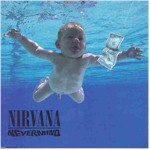
|
- Nirvana-Nevermind (1991, DGC).
- Nirvana hated being called a metal band, and
I can't say I blame them, since they were actually a pop band with the amps turned up a
bit. "Drain You" is a Beach Boys song with distortion. "Smells Like Teen
Spirit" was one of the best singles of the '90s, and Metallica wished they could
write something as equally hard and tuneful as "Territorial Pissings." Nevermind
was the Grunge Shot Heard Round The World, but its best kept secret is that it's also one
of the best pop albums of our time.
|
|
|